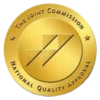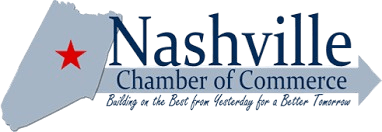Alcohol and Drug Rehab Covered by Cigna Insurance
Breaking free from the grip of addiction can feel like an insurmountable challenge, but you don’t have to face this journey alone. As one of the leading insurance providers with addiction coverage, Cigna has embraced its responsibility to support members struggling with substance use disorders, recognizing that addiction is a medical condition deserving of the same care and attention as any other health issue.
Since the implementation of the Affordable Care Act in 2014, health insurance policies have been required to cover treatment for mental health conditions and substance use disorders as essential health benefits. Cigna has not only met these requirements but has gone above and beyond to create comprehensive programs that address every aspect of the recovery journey, from initial detoxification to long-term maintenance and support.
Understanding Cigna Insurance and Your Benefits
Cigna Healthcare stands as one of the most respected names in the insurance industry, serving over 190 million customers worldwide and maintaining a presence in more than 30 countries. This global healthcare service company understands that addiction affects individuals from all walks of life and that seeking treatment requires tremendous courage. With this understanding, Cigna has structured its benefits to make addiction treatment both accessible and affordable for its members.
When you’re considering treatment for substance use disorder, it’s essential to understand that your Cigna plan is designed with your recovery in mind. The company recognizes that addiction is a complex medical condition that requires specialized care, ongoing support, and a comprehensive approach that addresses not just the physical aspects of addiction but also the psychological, social, and emotional components that contribute to substance use disorders.
What Cigna Covers for Addiction Treatment
Cigna covers substance abuse treatment for its members, providing partnerships with addiction rehab facilities throughout the country to offer a variety of detox, inpatient residential and outpatient services at discounted rates. Under the Affordable Care Act (ACA), most insurance companies are required to cover substance use treatment in some form. Forms of addiction treatment that Cigna may cover include medical detox, inpatient rehabilitation, residential treatment, outpatient rehabilitation, and counselling and therapy.
Medical Detox
Medical Detoxification: Your Cigna coverage typically includes a comprehensive range of addiction treatment services designed to address every stage of your recovery journey. Medical detoxification, often the crucial first step in addiction treatment, is covered under most Cigna plans. This medically supervised process ensures your safety while you withdraw from substances, with trained medical professionals monitoring your condition 24/7 and providing FDA-approved medications to manage withdrawal symptoms and reduce discomfort.
Inpatient/Residential Rehab
Inpatient Treatment: For individuals requiring intensive, round-the-clock care, Cigna covers inpatient residential treatment programs. For inpatient centers, the most basic plans will typically cover 20 days of treatment per calendar year. However, coverage can extend significantly based on medical necessity and your individual treatment plan. These programs provide a structured, supportive environment where you can focus entirely on your recovery without the distractions and triggers of daily life, surrounded by compassionate professionals who understand the complexities of addiction.
Outpatient Treatment Programs
Outpatient Treatment: Cigna also provides robust coverage for outpatient treatment programs, offering flexibility for those who need to maintain work, family, or educational responsibilities while receiving treatment. If you attend treatment sessions at a private outpatient facility, you will usually be covered for a length of 20 confidential visits per benefit period. These programs include intensive outpatient programs (IOPs) and partial hospitalization programs (PHPs), providing varying levels of support based on your specific needs and circumstances.
Individual Therapy Sessions:
Individual Therapy Sessions: Understanding that therapy forms the cornerstone of effective addiction treatment, Cigna includes comprehensive coverage for individual therapy sessions with licensed clinicians who specialize in addiction treatment. Additionally, group therapy sessions are covered, providing invaluable peer support and shared learning experiences that can be transformative in your recovery journey. These therapeutic relationships become vital sources of guidance, understanding, and accountability as you navigate the complexities of early recovery and beyond.
Family Therapy Sessions:
Family Therapy Sessions: Recognizing that addiction affects entire family systems, Cigna covers family therapy sessions designed to rebuild trust, improve communication patterns, and educate family members about how they can best support your recovery journey. These sessions acknowledge that healing happens not just for the individual struggling with addiction but for the entire family system that has been impacted by the disease.
Medication-Assisted Treatment
Medication-Assisted Treatment: For those struggling with opioid or alcohol addiction, Cigna covers medication-assisted treatment (MAT), which combines FDA-approved medications with counseling and behavioral therapies to provide a comprehensive, evidence-based approach to recovery. This treatment recognizes that some addictions benefit significantly from medical intervention alongside therapeutic support, and Cigna’s coverage ensures that cost doesn’t become a barrier to accessing these life-saving treatments.
Types of Cigna Health Plans and Coverage Levels
Cigna offers four main types of health insurance plans: Health Maintenance Organizations (HMOs), Exclusive Provider Organizations (EPOs), Point-Of-Service (POS) Plans and Preferred Provider Organizations (PPOs). Understanding the differences between these plan types can help you maximize your benefits and make informed decisions about your addiction treatment.
Health Maintenance Organizations (HMOs)
Cigna’s HMO plans typically offer lower monthly premiums and predictable copayment structures, making them an attractive option for individuals seeking cost-effective coverage for addiction treatment. With an HMO plan, you’ll need to select a primary care physician (PCP) who will coordinate your care and provide referrals to addiction treatment specialists when necessary. While this may seem like an additional step, many individuals find that having a PCP involved in their addiction treatment creates better continuity of care and helps address any underlying medical conditions that may be contributing to their substance use.
Preferred Provider Organizations (PPOs)
PPO plans offer maximum flexibility in choosing your healthcare providers, including addiction treatment facilities. You don’t need referrals from a primary care physician to seek addiction treatment, which means you can access care more quickly when you’re ready to take that crucial step toward recovery. While PPO plans typically have higher monthly premiums than HMOs, they often provide better coverage for out-of-network providers, which can be valuable if you find a specialized addiction treatment program that isn’t in Cigna’s network.
Exclusive Provider Organizations (EPOs)
EPO plans combine elements of both HMO and PPO plans, offering moderate flexibility without requiring referrals for most services, including addiction treatment. These plans typically don’t cover out-of-network care except in emergency situations, so it’s important to ensure that your chosen addiction treatment facility is part of Cigna’s EPO network before beginning treatment.
Point-of-Service Plans (POS)
POS plans require you to choose a primary care physician and get referrals for specialist care, including addiction treatment services. However, these plans often provide some coverage for out-of-network providers, though at a higher cost to you. If you’re considering a POS plan, discuss with your primary care physician their experience with addiction treatment referrals and their willingness to support your recovery journey.
-
In-Network Benefits
When searching for a drug and alcohol rehab center, staying within the network of Cigna providers will help you minimize your costs. In-network addiction treatment facilities have contracted rates with Cigna, which means you’ll receive the maximum benefits your plan offers while paying the lowest possible out-of-pocket costs.
When you choose an in-network treatment facility, you can expect predictable copayments or coinsurance rates, no balance billing (where the provider bills you for the difference between their standard rate and what insurance pays), streamlined claims processing with direct billing between the facility and Cigna, and access to care coordination services that help ensure continuity throughout your treatment journey.
-
Out-of-Network Considerations
While Cigna may provide some coverage for out-of-network addiction treatment providers, this coverage is typically significantly reduced compared to in-network benefits. When you receive treatment from an out-of-network provider, you may be responsible for higher deductibles, increased coinsurance or copayment amounts, balance billing for amounts above what Cigna considers reasonable and customary, and more complex claims processes that may require you to pay upfront and seek reimbursement later.
However, there are situations where out-of-network treatment might be necessary or beneficial, such as when in-network facilities have long waiting lists, when you need specialized treatment that isn’t available in-network, or when you’re traveling and need emergency addiction treatment services.
Understanding Your Costs
The financial aspect of addiction treatment can feel overwhelming, especially when you’re already dealing with the stress of addiction itself. Understanding your Cigna benefits and how costs are structured can help you plan effectively and focus on what matters most: your recovery.
Deductibles
Your deductible represents the amount you must pay out-of-pocket before your Cigna insurance coverage begins to pay for covered services. With Cigna, substance use and mental health coverage does not have a separate deductible, it is included as part of your employer’s medical plan. This integration means that any medical expenses you’ve already incurred during the plan year will count toward meeting your deductible for addiction treatment services.
Once you meet your annual deductible, your insurance will begin covering covered services according to your plan’s specific terms. It’s worth noting that some services, such as preventive care or certain outpatient visits, may be covered even before you meet your deductible, depending on your specific plan design.
Copayments and Coinsurance
After meeting your deductible, you may still be responsible for cost-sharing in the form of copayments (fixed dollar amounts) or coinsurance (a percentage of the total cost) for addiction treatment services. Copays are a flat fee you pay on the spot each time you use a medical service. Your copay pays for a portion of the service and the insurance company covers the rest.
Coinsurance works differently, requiring you to pay a percentage of the total cost of treatment after your deductible has been met. For example, if your plan has 80/20 coinsurance, Cigna pays 80% of the covered costs while you pay the remaining 20%. Understanding these cost-sharing mechanisms helps you budget for treatment and avoid surprise expenses.
Out-of-Pocket Maximums
Every Cigna plan includes an out-of-pocket maximum, which represents the most you’ll pay for covered services in a plan year. Once you reach this limit, Cigna covers 100% of covered services for the remainder of the plan year. This protection is especially important for individuals requiring extensive addiction treatment, as it provides financial predictability and ensures that the cost of treatment won’t become an ongoing barrier to recovery.
How to Verify Your Cigna Benefits

Online Portal
Cigna’s member portal provides detailed information about your specific plan benefits, including coverage for substance abuse treatment. Through this online resource, you can access your plan documents, check your deductible status, review covered services, find in-network providers, and track your claims and expenses throughout the year.

Customer Service
Calling Cigna’s customer service line provides personalized information about your benefits. Have your member ID card ready when you call, and ask specifically about your deductible status and remaining balance, copayment or coinsurance amounts for different types of addiction treatment, which treatment facilities are in-network in your area, pre-authorization requirements for various levels of care, coverage limits for different treatment modalities, and any special programs or resources available for addiction treatment.

Let Live Again Detox do the work
Many reputable addiction treatment centers like Live again detox, employ admissions specialists who are experienced in working with Cigna and can help verify your benefits on your behalf. This service removes much of the confusion around understanding your coverage and allows you to focus on the most important decision: choosing the right treatment program for your needs. These specialists can also help navigate the pre-authorization process if required and advocate for the level of care you need.
Mental Health Parity and Your Rights
The Mental Health Parity and Addiction Equity Act ensures that insurance coverage for substance use disorder treatment is equivalent to coverage for other medical conditions. This federal legislation means that Cigna cannot impose more restrictive limitations on addiction treatment than they do on other medical treatments.
Your rights under mental health parity include equal coverage limits and treatment duration compared to other medical conditions, the same copayment and deductible structures as other medical services, equivalent network adequacy standards ensuring reasonable access to addiction treatment providers, and the same level of care management and utilization review processes applied to other medical treatments.
This legal protection means that seeking help for addiction should feel no different from seeking help for diabetes, heart disease, or any other medical condition. If you feel that your addiction treatment benefits are being unfairly limited compared to other medical benefits, you have the right to file a complaint and seek resolution.
Continuing Care and Long-Term Support
Recovery from addiction is a lifelong journey, and Cigna recognizes the importance of ongoing support through comprehensive continuing care programs. These benefits provide coverage to enable the treatment of substance use under employer-sponsored health plans, including access to benefits for confidential therapy, a variety of treatment options, and access to recovery specialists.
Cigna’s continuing care programs include ongoing individual and group therapy sessions to help maintain sobriety and address challenges that arise in recovery, continued monitoring and adjustment of medications used in medication-assisted treatment programs, specialized relapse prevention programs designed to help you identify triggers and develop effective coping strategies, coverage for participation in structured support groups and community-based recovery programs, and access to employee assistance programs (EAPs) that provide additional resources and support.
This continuum of care ensures that your recovery doesn’t end when you complete your initial treatment program. Instead, it provides a foundation for long-term success and helps you build the skills and support network necessary for sustained recovery.
Finding In-Network Treatment Providers
Locating addiction treatment providers within Cigna’s network is essential for maximizing your benefits and minimizing your costs. You can find in-network treatment providers through several methods:
Cigna’s online provider directory allows you to search for addiction treatment facilities in your area that accept your specific insurance plan. This tool can be filtered by location, specialty, and type of treatment offered. Many treatment centers also list the insurance plans they accept on their websites or will verify your benefits over the phone, making it easier to understand your coverage before beginning treatment.
Additionally, your primary care physician or mental health professional may be able to refer you to in-network addiction treatment providers who understand both your medical history and your insurance benefits. SAMHSA’s National Helpline also provides treatment referral services and can help you locate facilities that accept Cigna insurance.
Taking the First Step
If you or someone you love is struggling with substance use, remember that seeking help is a sign of strength, not weakness. Your Cigna insurance benefits are designed to support you on this journey, removing financial barriers that might otherwise prevent you from getting the care you need.
Recovery is not only possible but probable with the right support and treatment. With Cigna’s comprehensive coverage for addiction treatment, you can focus on healing and building a foundation for lasting sobriety rather than worrying about the financial aspects of treatment. As one of the premier insurance providers with addiction coverage, Cigna has structured their benefits to support you through every stage of recovery.
For those in Tennessee, Live Again Detox offers comprehensive addiction treatment services and can help verify your Meritain coverage while providing personalized care throughout your recovery journey.
Recovery is not just a possibility, it’s within your reach, and your Cigna insurance is there to help make it happen. With the right treatment, ongoing support, and your determination to change, you can overcome addiction and build the life you deserve.
Frequently Asked Questions
Yes, Cigna covers drug and alcohol rehab. All Cigna plans are required to provide coverage for substance use disorder treatment as mandated by federal healthcare laws, including the Affordable Care Act and Mental Health Parity Act.
The length of treatment Cigna covers depends on your specific plan and medical necessity. Basic plans typically cover at least 20 days of inpatient treatment and 20 outpatient visits per benefit period, though extensions are often possible based on clinical need and your treatment progress.
This depends on your specific Cigna plan type. PPO and EPO plans typically don’t require referrals for addiction treatment, while HMO and POS plans may require authorization from your primary care physician before seeking specialized care.
Cigna’s medical necessity criteria for addiction treatment follows ASAM criteria for coverage. Some Cigna plans require pre-authorization for certain types of addiction treatment, particularly inpatient residential programs and intensive outpatient services. This process involves your treatment provider submitting documentation to Cigna demonstrating the medical necessity of the recommended level of care.
The pre-authorization process typically considers several factors: the severity of your substance use disorder, any previous treatment attempts and their outcomes, your overall physical and mental health status, the presence of co-occurring mental health conditions, your support system and home environment, and any safety concerns that might affect your treatment needs.
Understanding that the pre-authorization process can feel daunting when you’re already vulnerable and seeking help, many treatment centers have staff dedicated to managing this process on your behalf. Don’t let the requirement for pre-authorization discourage you from seeking the help you need – view it instead as a way to ensure you receive the most appropriate level of care for your specific situation.
You can search Cigna’s online provider directory, contact treatment centers directly to verify they accept your specific plan, call Cigna customer service for assistance, or use resources like SAMHSA’s treatment locator to find facilities in your area.
Yes, Your Insurance Covers Detox and Rehab Treatment

Dr. Vahid Osman, M.D.
Board-Certified Psychiatrist and Addictionologist
Josh Sprung, L.C.S.W.
1. Cigna Insurance Coverage & Programs
Claim: Cigna covers detox, inpatient, outpatient, therapy, family therapy, MAT, and continuing care, aligning with ACA and mental health parity laws.
-
Cigna. (n.d.). Behavioral health | Individual & Commercial Plans. https://www.cigna.com/provider/individual-commercial/behavioral-health
-
Cigna. (n.d.). Your rights under the Mental Health Parity and Addiction Equity Act. (See MHPAEA summaries on cigna.com)
2. Federal Law & Parity Protections
Claim: ACA and the Mental Health Parity and Addiction Equity Act mandate equitable coverage for substance use treatment.
-
U.S. Department of Health & Human Services. (2014). Affordable Care Act provisions for behavioral health. https://www.hhs.gov/behavioral-health/mental-health-cond-summaries
-
U.S. Department of Labor. (n.d.). Mental Health Parity and Addiction Equity Act (MHPAEA). https://www.dol.gov/general/topic/health-plans/parity
3. Addiction Treatment Science
Claim: Effective treatment for substance use disorders includes both clinical and therapeutic interventions supported by research.
-
National Institute on Drug Abuse. (2020). Principles of drug addiction treatment: A research-based guide (3rd ed.). National Institutes of Health. https://nida.nih.gov/publications/principles-drug-addiction-treatment-research-based-guide-third-edition
4. Evidence-Based Care
Claim: MAT and behavioral therapies are clinically effective in improving recovery outcomes.
-
Substance Abuse and Mental Health Services Administration. (n.d.). Medications for opioid use disorder. U.S. Department of Health & Human Services. https://www.samhsa.gov/medications-substance-use-disorders/medications-counseling-related-conditions
5. Tennessee-Specific Behavioral Health Resources
Claim: Tennessee provides licensed behavioral health facilities and resources for individuals seeking treatment.
-
Tennessee Department of Mental Health and Substance Abuse Services. (n.d.). Find a licensed facility or service. State of Tennessee. https://www.tn.gov/behavioral-health/licensing/find-a-licensed-facility-or-service.html

State Licensed
Live Again Detox is licensed by the Tennessee Department of Mental Health & Substance Abuse Services, ensuring compliance with state regulations for safe, ethical, and effective addiction treatment.

The Joint Commission
The Gold Seal of Approval® signifies that Live Again Detox meets or exceeds rigorous national standards for patient care, safety, and quality.
LegitScript Certified
Live Again Detox is certified by LegitScript, confirming compliance with laws and standards for ethical marketing and patient transparency in addiction treatment.
HIPAA Compliant
Ensures patient information at Live Again Detox is fully protected under federal privacy regulations.
BBB Accredited
Demonstrates Live Again Detox’s commitment to ethical business practices and community trust.

Chamber of Commerce Member
Live Again Detox is an active member of the local Chamber of Commerce, reflecting its commitment to community growth and support.

ASAM Member
Membership in the American Society of Addiction Medicine reflects Live Again Detox’s dedication to science-based treatment and advancing standards in addiction care.

Psychology Today Verified
A verified listing on Psychology Today confirms that Live Again Detox provides trustworthy and transparent treatment services.
Treatment Programs
- Addiction Treatment
- Residential Treatment
- Aftercare Program
- Dual Diagnosis Treatment
- 12 Step Program
- Trauma Treatment
- Holistic Treatment
Yes, Your Insurance Covers Detox and Rehab Treatment
Get Family Support Now
Supporting Families Through Recovery
We understand addiction affects the whole family. Our comprehensive family program helps rebuild trust and restore relationships.
Weekly Family Therapy Sessions
Educational Workshops
Support Groups
Communication Skills Training
Get Family Support Now


What Our Patients Say
Hear directly from those who have walked the path to recovery at Live Again Detox. Our patients’ stories highlight the compassionate care, effective programs, and life-changing support they’ve experienced. Let their journeys inspire you as you take your first steps toward healing.
Have Questions? We Can Help!
![]() 24/7 Support Need someone to talk to? We’re always here—day or night.
24/7 Support Need someone to talk to? We’re always here—day or night.
![]() No Commitment Ask questions, get guidance—no pressure, no obligation.
No Commitment Ask questions, get guidance—no pressure, no obligation.
![]() 100% Private Your story stays with us. Confidential support, always
100% Private Your story stays with us. Confidential support, always
